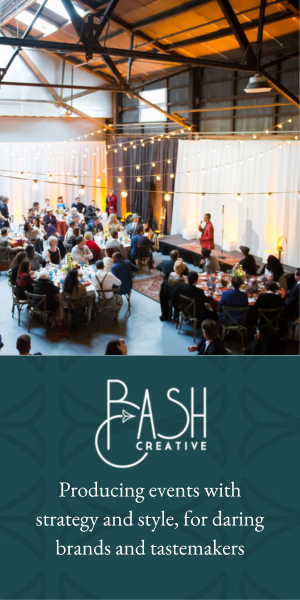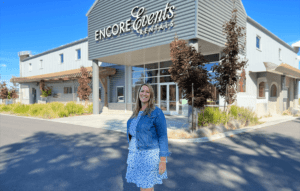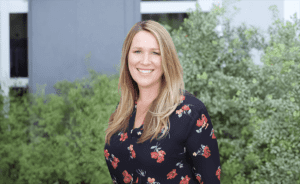Tiwa Ogunlesi is a confidence coach and the Founder of Confident and Killing It. In her own words, the company is a purpose-driven media organization that is all about waking people up to their worth, helping them master their minds, believe in themselves and show up in the world. In this interview for Follow the Founder, Tiwa talks about the pros and cons of perfection and being flexible as a Founder.
The Dark Side of Perfection
When we talk about self-belief and confidence, it is difficult to stray away from the topic of perfection. Striving to be perfect is the opposite to being confident in many ways: it introduces a fear of failure, sets unrealistic standards for ourselves and others, increases levels of self-criticism, and many more. But more crucially, striving to be perfect bases our sense of self-worth on the perception of others. It invites judgment and stunts personal growth. Yet, why are we so obsessed with it? We ask Tiwa about her take on that.

“In the world that we live in, we are socialized from a very young age to put our best foot forward, to work hard, to get good grades. This is especially true for girls. Girls are socialized to be nice, neat, and perfect. They are rewarded for that, whereas boys are rewarded for being adventurous and making a mess. People say, “Oh, he’s a boy. Of course, he’s messy.” But if you saw a girl whose hair was messy and whose socks were dirty, you would think, “Huh, she’s not a good girl.”
“The media we consume and the images that we see, they’re all made to be ‘perfect’. So we’re constantly surrounded by this sense of perfection and are told to do things in a perfect way. Perfectionism is rewarded. So I’m not surprised that as human beings we have a natural tendency to want to be perfect.”
Making “Perfection” Work For You
The truth is, however, that the drive to achieve perfection is strong for many of us. So how can we reframe our idea of “perfect”? How can we use it to progress forward and strive for growth rather than limit ourselves or experience feelings of unworthiness? Tiwa gives us the answer.
“In Chapter Four of my book “Confident and Killing It”, I talk about the difference between a high achiever and an overachiever. Understanding that difference can make perfectionism work in your favor. If you are a high achiever, you usually experience healthy levels of perfectionism. Let’s say you have a goal. Your plan to achieve it is taking Route A, but you end up taking Route D. This also takes you to your end goal, but is maybe slightly longer, maybe a little more bumpy.
“A high achiever knows the wisdom is in the journey, and that success is in the process, regardless of the route you end up taking. An overachiever will consider this as a failure because they didn’t achieve the goal by their planned Route A.
“We just have to be flexible, we have to be open to the opportunities and the hurdles life is going to throw at us. We should try not to be fixated on end outcomes. This is a great way to let go of perfectionism and just embrace your progress in the moment.”
A flexible mindset can take us to wondrous places. Place the importance on the journey to reaching a goal, trusting the outcome, and moving forward with what is presented. Which path you take to the destination shouldn’t matter. And sometimes, taking a longer road teaches us invaluable lessons that can help us once we have reached that destination or goal. We ask Tiwa to share with us some examples of goals where the journey was different to her expectations and what that taught her.

“When I do events, something can easily go wrong. In that moment, I could have an emotional breakdown or I can just say to myself, ‘The game is the game, when you put yourself out there and you plan things, something is likely to go wrong.’
“It’s about how you are going to respond to the challenge. The question is not ‘Why is this happening to me?’ The question is ‘How am I going to respond to this?’
“I’ve had so many things go wrong with my podcast too, at various stages of it. But I made a promise to myself that I was going to be consistent with my effort no matter what. I’ve taped in multiple studios and so the look and feel has changed. The perfectionist in me is saying, ‘Get your branding straight, get your location sorted, and show up in this perfect setting’. But if I had waited to do that, I wouldn’t have learned from all the mistakes and what being in bad podcast studios had taught me, and I probably wouldn’t have started the podcast, because I’d be waiting for the perfect studio. Meanwhile, people only care about the message, they don’t care about where it’s recorded. By the time I find the right studio that works for me, and I have 10-15, 20 episodes in this new studio, no one’s going to remember that my first few episodes are in another studio.”
Long-Terms Goals and Route Ds
Talking about various routes we can take to achieve a goal, we finish the interview by asking Tiwa what alternative routes she ended up taking in her four-year entrepreneurship journey.
“When I started my business, I didn’t set long-term goals. I wanted to take each year as it came and be open to what it brought. I had a wish list of brands that I wanted to work with and places I wanted to speak at. A lot of those happened within the first year. I have revenue goals I want to hit and things like that. But when I started, I didn’t see a book. I didn’t see a podcast. I didn’t see building a whole separate side of the business about learning and development for corporations. I just knew that I cared about the message and I wanted to build a media organization. I’ve listened to my intuition. So for example, I felt in my heart that it was time to start a podcast, and so I started it. I didn’t see myself writing a book until many, many years more in my life, and then that opportunity presented itself in my second year of running the business. I’ve always gone with how life has surprised me, and it’s been good.”
Being flexible and open to new experiences promotes growth and learning. As entrepreneurs, we cannot have blinders on when building our businesses. Our focus cannot be so acute that we are unaware of opportunities as they arrive in our peripheral vision. While our eyes are fixed on the end goal, we must be open to unexpected opportunities that still align with our overall vision and values. The ‘you’ today doesn’t have the capacity to imagine or predict the path that the ‘you’ tomorrow will have traveled. The key is to understand our value statements and calling, so we don’t get sidetracked or pause too long in one place. So keep putting one foot in front of the other and keep your head on a swivel.
“The disadvantage for some people is that they may get really distracted doing loads of other different things. You just have to know yourself and the main messages that you want to be putting out there. I’m still very much experimenting with the best way to do that. But yeah, I think I’ve definitely achieved way more than what I thought I would in the space of four years as a full-time entrepreneur. So yeah, I’m super grateful, like, when I look back from where I started to where I am now, when I tell people everything that I do, they look at me in disbelief. I am extremely grateful for my journey.”
If you enjoyed learning from Tiwa, follow us on Follow the Founder for much more advice, stories and wisdom. You can also find us on Instagram or LinkedIn.
Want to Keep Reading?
Confident and Killing It: Tiwalola Ogunlesi
An empowering, practical guide to overcoming imposter syndrome, getting sassy with negative thoughts and succeeding in all areas of life.































